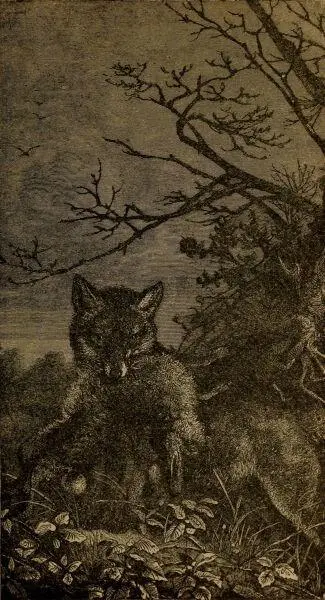John George Wood - Story of the Bible Animals
Здесь есть возможность читать онлайн «John George Wood - Story of the Bible Animals» — ознакомительный отрывок электронной книги совершенно бесплатно, а после прочтения отрывка купить полную версию. В некоторых случаях можно слушать аудио, скачать через торрент в формате fb2 и присутствует краткое содержание. Жанр: foreign_prose, foreign_religion, Философия, foreign_psychology, foreign_antique, на английском языке. Описание произведения, (предисловие) а так же отзывы посетителей доступны на портале библиотеки ЛибКат.
- Название:Story of the Bible Animals
- Автор:
- Жанр:
- Год:неизвестен
- ISBN:нет данных
- Рейтинг книги:4 / 5. Голосов: 1
-
Избранное:Добавить в избранное
- Отзывы:
-
Ваша оценка:
- 80
- 1
- 2
- 3
- 4
- 5
Story of the Bible Animals: краткое содержание, описание и аннотация
Предлагаем к чтению аннотацию, описание, краткое содержание или предисловие (зависит от того, что написал сам автор книги «Story of the Bible Animals»). Если вы не нашли необходимую информацию о книге — напишите в комментариях, мы постараемся отыскать её.
Story of the Bible Animals — читать онлайн ознакомительный отрывок
Ниже представлен текст книги, разбитый по страницам. Система сохранения места последней прочитанной страницы, позволяет с удобством читать онлайн бесплатно книгу «Story of the Bible Animals», без необходимости каждый раз заново искать на чём Вы остановились. Поставьте закладку, и сможете в любой момент перейти на страницу, на которой закончили чтение.
Интервал:
Закладка:
If we put out of our minds the idea of the English Fox, an animal comparatively scarce in this country, and solitary in its habits, and substitute the extremely plentiful and gregarious Jackal, wandering in troops by night, and easily decoyed by hunger into a trap, we shall see that double the number might have been taken, if needful. Moreover, it is not to be imagined that Samson caught them all with his own hand. He was at the head of his people, and had many subordinates at his command, so that a large number of hunters might have been employed simultaneously in the capture. In corroboration of this point, I insert an extremely valuable extract from Signor Pierotti's work, in which he makes reference to this very portion of the sacred history:—
"It is still very abundant near Gaza, Askalon, Ashdod, Ekron, and Ramleh. I have frequently met with it during my wanderings by night, and on one occasion had an excellent opportunity of appreciating their number and their noise.
"One evening in the month of January, while it was raining a perfect deluge, I was obliged, owing to the dangerous illness of a friend, to return from Jerusalem to Jaffa. The depth of snow on the road over a great part of the mountain, the clayey mud in the plain, and the darkness of the night, prevented my advancing quickly; so that about half-past three in the morning I arrived on the bank of a small torrent, about half an hour's journey to the east of Ramleh. I wished to cross: my horse at first refused, but, on my spurring it, advanced and at once sank up to the breast, followed of course by my legs, thus teaching me to respect the instinct of an Arab horse for the future.

A FEAST SECURED.
"There I stuck, without the possibility of escape, and consoled my horse and myself with some provisions that I had in my saddle-bags, shouting and singing at intervals, in the hope of obtaining succour, and of preventing accidents, as I knew that the year before a mule in the same position had been mistaken for a wild beast, and killed. The darkness was profound, and the wind very high; but, happily, it was not cold; for the only things attracted by my calls were numbers of jackals, who remained at a certain distance from me, and responded to my cries, especially when I tried to imitate them, as though they took me for their music-master.
"About five o'clock, one of the guards of the English consulate at Jerusalem came from Ramleh and discovered my state. He charitably returned thither, and brought some men, who extricated me and my horse from our unpleasant bath, which, as may be supposed, was not beneficial to our legs.
"During this most uncomfortable night, I had good opportunity of ascertaining that, if another Samson had wished to burn again the crops in the country of the Philistines, he would have had no difficulty in finding more than three hundred jackals, and catching as many as he wanted in springs, traps, or pitfalls. (See Ps. cxl. 5.)"
The reader will now see that there was not the least difficulty in procuring the requisite number of animals, and that consequently the first objection to the truth of the story is disposed of.
We will now proceed to the second objection, which is, that if the animals were tied tail to tail, they would remain on or near the same spot, because they would pull in different directions, and that, rather than run about, they would turn round and fight each other. Now, in the first place, we are nowhere told that the tails of the foxes, or jackals, were placed in contact with each other, and it is probable that some little space was left between them. That animals so tied would not run in a straight line is evident enough, and this was exactly the effect which Samson wished to produce. Had they been at liberty, and the fiery brand fastened to their tails, they would have run straight to their dens, and produced but little effect. But their captor, with cruel ingenuity, had foreseen this contingency, and, by the method of securing them which he adopted, forced them to pursue a devious course, each animal trying to escape from the dreaded firebrand, and struggling in vain endeavours to drag its companion towards its own particular den.
A TRESPASSER.
All wild animals have an instinctive dread of fire; and there is none, not even the fierce and courageous lion, that dares enter within the glare of the bivouac fire. A lion has even been struck in the face with a burning brand, and has not ventured to attack the man that wielded so dreadful a weapon. Consequently it may be imagined that the unfortunate animals that were used by Samson for his vindictive purpose, must have been filled with terror at the burning brands which they dragged after them, and the blaze of the fire which was kindled wherever they went. They would have no leisure to fight, and would only think of escaping from the dread and unintelligible enemy which pursued them.
When a prairie takes fire, all the wild inhabitants flee in terror, and never think of attacking each other, so that the bear, the wolf, the cougar, the deer, and the wild swine, may all be seen huddled together, their natural antagonism quelled in the presence of a common foe. So it must have been with the miserable animals which were made the unconscious instruments of destruction. That they would stand still when a burning brand was between them, and when flames sprang up around them, is absurd. That they would pull in exactly opposite directions with precisely balanced force is equally improbable, and it is therefore evident that they would pursue a devious path, the stronger of the two dragging the weaker, but being jerked out of a straight course and impeded by the resistance which it would offer. That they would stand on the same spot and fight has been shown to be contrary to the custom of animals under similar circumstances.
Thus it will be seen that every objection not only falls to the ground, but carries its own refutation, thus vindicating this episode in sacred history, and showing, that not only were the circumstances possible, but that they were highly probable. Of course every one of the wretched animals must have been ultimately burned to death, after suffering a prolonged torture from the firebrand that was attached to it. Such a consideration would, however, have had no effect for deterring Samson from employing them. The Orientals are never sparing of pain, even when inflicted upon human beings, and in too many cases they seem utterly unable even to comprehend the cruelty of which they are guilty. And Samson was by no means a favourable specimen of his countrymen. He was the very incarnation of strength, but was as morally weak as he was corporeally powerful; and to that weakness he owed his fall. Neither does he seem to possess the least trace of forbearance any more than of self-control, but he yields to his own undisciplined nature, places himself, and through him the whole Israelitish nation, in jeopardy, and then, with a grim humour, scatters destruction on every side in revenge for the troubles which he has brought upon himself by his own acts.
THE HYÆNA
The Hyæna not mentioned by name, but evidently alluded to—Signification of the word Zabua—Translated in the Septuagint as Hyæna—A scene described by the prophet Isaiah—The Hyæna plentiful in Palestine at the present day—its well-known cowardice and fear of man—The uses of the Hyæna and the services which it renders—The particular species of Hyæna—The Hyæna in the burial-grounds—Hunting the Hyæna—Curious superstition respecting the talismanic properties of its skin—Precautions adopted in flaying it—Popular legends of the Hyæna and its magical powers—The cavern home of the Hyæna—The valley of Zeboim.
Читать дальшеИнтервал:
Закладка:
Похожие книги на «Story of the Bible Animals»
Представляем Вашему вниманию похожие книги на «Story of the Bible Animals» списком для выбора. Мы отобрали схожую по названию и смыслу литературу в надежде предоставить читателям больше вариантов отыскать новые, интересные, ещё непрочитанные произведения.
Обсуждение, отзывы о книге «Story of the Bible Animals» и просто собственные мнения читателей. Оставьте ваши комментарии, напишите, что Вы думаете о произведении, его смысле или главных героях. Укажите что конкретно понравилось, а что нет, и почему Вы так считаете.












